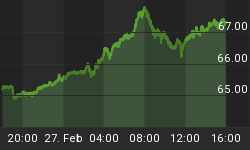The future of oil exploration lies in new technology--from massive data-processing supercomputers to 4D seismic to early-phase airborne spy technology that can pinpoint prospective reservoirs.
Oil and gas is getting bigger, deeper, faster and more efficient, with new technology chipping away at "peak oil" concerns. Hydraulic fracturing has caught mainstream attention, other high-tech developments in exploration and discovery have kept this ball rolling.
Oil majors are second only to the US Defense Department in terms of the use of supercomputing systems, which find sweet spots for drilling based on analog geology. These supercomputing systems analyze vast amounts of seismic imaging data collected by geologists using sound waves.
What's changed most recently is the dimension: When the oil and gas industry first caught on to seismic data collection for exploration efforts, the capabilities were limited to 2-dimensional imaging. The next step was 3D, which gives a much more accurate picture of what's down there.
The latest is the 4th dimension: Time, which allows explorers not only to determine the geological characteristics of a potential play, but also tells them how a reservoir is changing in real time. But all this is very expensive. And oilmen are zealous cost-cutters.
The next step in technology takes us off the ground and airborne--at a much cheaper cost--according to Jen Alic, a global intelligence and energy expert for OP Tactical.
The newest advancement in oil exploration is an early-phase aerial technology that can see what no other technology--including the latest 3D seismic imagery--can see, allowing explorers to pinpoint untapped reservoirs and unlock new profits, cheaper and faster.
"We've watched supercomputing and seismic improve for years. Our research into new airborne reservoir-pinpointing technology tells us that this is the next step in improving the bottom line in terms of exploration," Alic said.
"In particular, we see how explorers could reduce expensive 3D seismic spending because they would have a much smaller area pinpointed for potential. Companies could save tens of millions of dollars."
The new technology, developed by Calgary's NXT Energy Solutions, has the ability to pinpoint prospective oil and gas reservoirs and to determine exactly what's still there from a plane moving at 500 kilometers an hour at an altitude of 3,000 meters.
The Stress Field Detection (SFD) technology uses gravity to gather its oil and gas intelligence--it can tell different frequencies in the gravitational field deep underground.
Just like a stream is deflected by a big rock, SFD detects gravity disturbances due to subsurface stress and density variations. Porous rock filled with fluids has a very different density than surrounding solid rocks. Remember, gravity measurement is based on the density of materials. SFD detects subtle changes in earth's gravitational field.
According to its developers, the SFD could save oil and gas companies up to 90% of their exploration cost by reducing the time spent searching for a reservoir and drilling into to it to determine whether there's actually any oil and gas still there.
"Because it's all done from the air, SFD doesn't need on-the-ground permitting, and it covers vast acreage very quickly. It tells explorers exactly where to do their very expensive 3D seismic, greatly reducing the time and cost of getting accurate drilling information," NXT Energy Solutions President and CEO George Liszicasz, told Oilprice.com in a recent interview.
Mexico's state-owned oil company Pemex has already put the new technology to the test both onshore and offshore in the Gulf of Mexico, and was a repeat customer in 2012. They co-authored with NXT a white paper on their initial blind-test used of the survey technology.
At first, management targeted the technology to frontier areas where little seismic or well data existed. As an example, Pacific Rubiales Energy is using SFD technology in Colombia, where the terrain, and environmental concerns, make it difficult to obtain permits and determine where best to drill.
The technology was recently contracted in the United States for unconventional plays as well.
Source: http://oilprice.com/Energy/Energy-General/New-Spy-Technology-to-Spawn-Oil-Revolution.html
By. James Burgess of Oilprice.com















